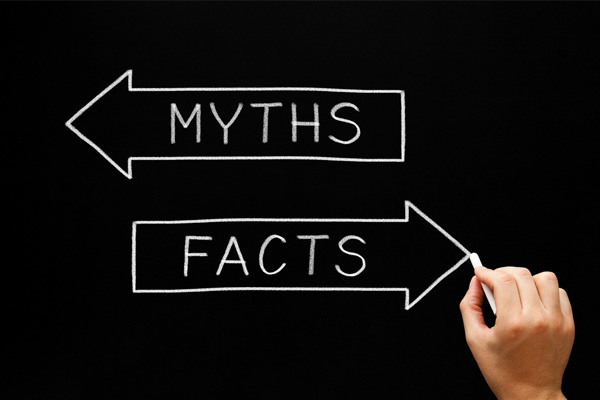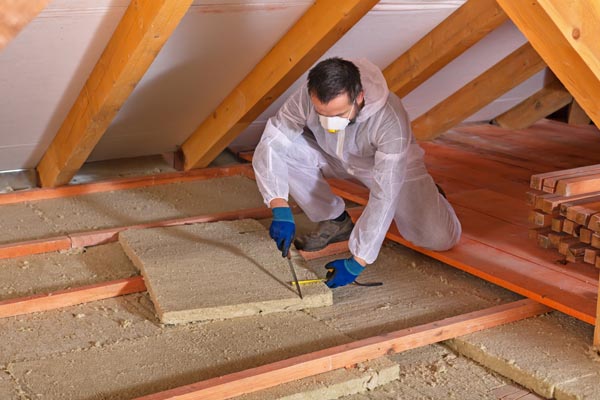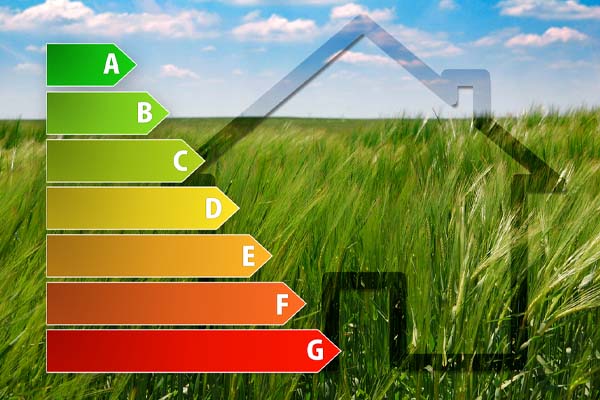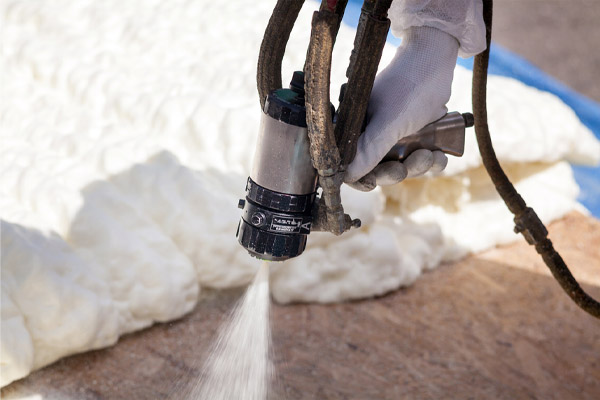Myths and Facts: Debunking Common Misconceptions about Home Insulation in Colorado

Proper home insulation plays a pivotal role in the quest for energy efficiency. Yet, it is not uncommon for myths and misconceptions to cloud the understanding of insulation’s true benefits and significance. In this guide, we will debunk common insulation myths, shed light on the facts, and help homeowners make informed decisions to improve their home’s energy efficiency, comfort, and sustainability.
Myths and Facts: Exposing Common Fallacies about Home Insulation
Contents
- Myths and Facts: Exposing Common Fallacies about Home Insulation
- Myth: All Insulation Types Are the Same
- Fact: Insulation R-Value Matters
- Myth: More Insulation Means Better Performance
- Fact: Proper Installation Is Key
- Myth: Insulation Can Be Compacted to Increase Efficiency
- Fact: Ventilation Is Essential
- Myth: New Homes Don’t Need Additional Insulation
- Fact: Retrofitting Can Improve Efficiency
- Myth: Insulation Is Only for Cold Climates
- Fact: Insulation Affects Cooling Too
- Myth: DIY Insulation Is Always Cost-Effective
- Fact: Professional Installation Ensures Performance
- Conclusion
- Call Ascend Construction For Home Insulation Services In Fort Collins, Colorado
Keep reading to learn more about the common myths surrounding home insulation.
Related Article: Low-Pressure vs High-Pressure Spray Foam: What’s the Difference?
Myth: All Insulation Types Are the Same
A common misconception about insulation is the belief that all materials provide equal performance. In reality, insulation types vary significantly, each with specific characteristics and applications. Materials like fiberglass, cellulose, foam board, and spray foam insulation have distinct properties that affect their insulating capabilities, thermal resistance (R-value), and suitability for different areas of a home. Understanding the differences is vital for selecting the right insulation type to maximize energy efficiency and comfort while dispelling the myth that insulation is a one-size-fits-all solution.
Fact: Insulation R-Value Matters
A crucial aspect of insulation performance is its R-value. It measures insulation’s effectiveness in resisting heat transfer. The higher the R-value, the better the insulation’s thermal resistance. This means that higher R-value insulation provides more heat flow resistance. This will help maintain consistent indoor temperatures, reducing energy consumption and enhancing overall comfort. When insulating your home, consider the recommended R-values for your specific climate and the different areas of your house for optimal energy efficiency and comfort.
Myth: More Insulation Means Better Performance
While insulation is crucial for energy efficiency, there is a common misconception that adding more insulation always leads to better performance. The truth is, there is a point of diminishing returns. Once you reach an optimal level of insulation, adding excessive insulation will not improve energy efficiency but can increase costs. Proper installation and achieving the recommended R-values for your climate are more critical than over-insulating. It is crucial to strike the right balance to maximize energy savings and maintain a comfortable indoor environment without unnecessary expenses.
Related Article: New Windows or New Insulation: What is Best for Energy Efficiency?
Fact: Proper Installation Is Key

One of the most vital aspects of insulation is proper installation. Even if you have the best insulation material with a high R-value, its performance can be severely compromised if it is not installed correctly. Gaps, compression, and air leaks can significantly reduce the insulation’s effectiveness. For example, compressed insulation loses its ability to trap air, which is essential for its insulating properties. Air leaks around insulation can allow heat to escape or enter your home. Insulation must be installed according to manufacturer guidelines and by experienced professionals to maximize its energy-saving benefits.
Related Article: The Unexpected Places You Should Be Insulating Your Colorado Home
Myth: Insulation Can Be Compacted to Increase Efficiency
Some homeowners may mistakenly believe that compacting insulation can enhance its performance by increasing its density. However, this is a common misconception. In reality, compressing insulation can have the opposite effect. Insulation materials are designed to work by trapping air within their structure. This trapped air is what provides the material’s insulating properties. When insulation is compressed, the air pockets are squeezed out, reducing its ability to resist heat transfer. As a result, the R-value of the insulation decreases, and its effectiveness is compromised. Proper installation that follows manufacturer guidelines is important to make sure that insulation functions at its optimal performance level.
Fact: Ventilation Is Essential
While insulation helps maintain a comfortable indoor temperature and reduces heat loss or gain, ventilation helps keep indoor air quality high and prevents moisture-related issues. Without adequate ventilation, moisture can accumulate within the home. This can result to issues like mold and mildew growth, which can negatively affect both the health of occupants and the integrity of the building. Ventilation helps remove indoor pollutants and maintain a fresh, healthy environment. It is essential to strike the right balance between insulation and ventilation to create an energy-efficient and healthy home.
Related Article: The Environmental Impact of Proper Insulation: A Closer Look
Myth: New Homes Don’t Need Additional Insulation
It is a common misconception that new homes are automatically well-insulated. While modern building codes require a certain level of insulation in new constructions, it does not always guarantee the highest level of energy efficiency. Building codes are updated to meet current energy standards, and these standards can vary by region. New homes might still benefit from additional insulation to achieve higher efficiency levels and lower energy bills. The decision to add more insulation should be based on a thorough assessment of insulation levels, local climate conditions, and energy efficiency goals.
Fact: Retrofitting Can Improve Efficiency

Retrofitting existing homes with insulation is a proven method to enhance energy efficiency. Older homes often have inadequate insulation levels by today’s standards. This can lead to energy waste and higher utility bills. By upgrading insulation in walls, attics, and crawl spaces, homeowners can significantly reduce heat loss and improve their home’s overall efficiency. Properly retrofitting insulation can lead to lower energy costs, increased comfort, and a reduced environmental impact. It is a cost-effective way to enhance the value and sustainability of older homes.
Related Article: Important Insulation Information When Buying a House In Fort Collins
Myth: Insulation Is Only for Cold Climates
Another common misconception is that insulation is primarily needed in cold climates to keep homes warm. In reality, insulation plays a crucial role in maintaining comfortable indoor temperatures in all climates, whether hot or cold. Insulation helps create a thermal barrier that reduces heat transfer. It keeps indoor spaces cooler in hot weather and warmer in cold weather. In warmer climates, proper insulation can lower cooling costs by minimizing heat gain, while in colder climates, it prevents heat loss.
Fact: Insulation Affects Cooling Too
Insulation does not just benefit homes in cold climates. It also has a significant impact on cooling efficiency in warmer regions. In hot weather, insulation acts as a barrier to prevent heat from outside entering the home. This means that well-insulated homes stay cooler and require less energy to keep a comfortable indoor temperature. It helps keep the conditioned air inside and the hot air outside. It reduces the workload on air conditioning systems.
Myth: DIY Insulation Is Always Cost-Effective

While some owners may opt for DIY insulation projects to save money, it is important to recognize that DIY is not always the most cost-effective route. Improper installation can lead to gaps, compression, and reduced insulation effectiveness. This can result in higher energy or utility bills in the long run. DIY insulation may not meet local building codes or safety standards. This can lead to costly corrections or even safety hazards. Professional insulation installation guarantees proper materials, techniques, and compliance with regulations. It often provides better long-term cost savings through improved energy efficiency and avoiding costly mistakes.
Fact: Professional Installation Ensures Performance

Hiring professionals for insulation installation offers several key benefits. Experts have the knowledge and experience to select the right insulation materials based on your home’s specific needs, climate, and building codes. They ensure proper coverage, eliminating gaps, compression, and other common DIY mistakes. Professionals follow industry best practices, guaranteeing that the insulation performs optimally, improving energy efficiency, and reducing utility costs. Their work also adheres to safety standards and local regulations, avoiding potential issues and costly corrections down the road.
Conclusion
Understanding the truths and dispelling the myths about insulation is essential for making informed decisions about home energy efficiency. It is important to separate facts from fiction. When planning insulation projects, seek reliable information, consider the specifics of your home, and consult with professionals who can ensure proper materials, installation, and long-term performance. By doing so, you will create a more comfortable, energy-efficient, and cost-effective living environment.
Related Article: What Is Thermal Bridging In Colorado Homes?
Call Ascend Construction For Home Insulation Services In Fort Collins, Colorado
When it concerns air sealing or upgrading your home’s insulation, consulting with a professional is the best option. However, not all will offer the same quality of service and pricing. Always work with the best one in your area. Residents of Fort Collins, Colorado, and the neighboring area can call Ascend Construction for superior service.
Ascend Construction specializes in insulation removal and installation, air sealing, energy conservation, energy audits, whole-house fan installations, and much more! You can count on us to provide you with service that outshines the rest!

Contact Ascend Construction for a free consultation today. We can provide you with practical solutions to address the problem areas in your Fort Collins home. All of our services are affordable, and our work is guaranteed. Click here to contact us, or click the button below to give Ascend Construction a call. We offer free, no-obligation, in-home consultations.
Ascend Construction
301 S Howes St #1241
Fort Collins, CO, 80521